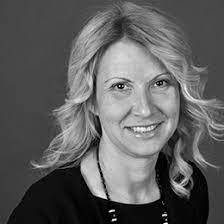Interested candidates for participation in the Organizational Counseling education program needs to send an application for education with additional documents that we list below, as well as a signed Statement of Acceptance of the Ethical Code of Education.
After reviewing the applications, you will receive information by email about the exact date of the start of education.
The application for education in organizational counseling should contain:
- Candidate's biography with basic information (EUROPASS CV format is recommended): name and surname, residential address, e-mail, phone, name and time of completion of academic studies, postgraduate studies; previous educations, work experience (institution, position and duration)
- Motivation letter in free form not longer than two pages: why you want to attend this education, what are your expectations as well as in which areas you see possibilities of applying the acquired knowledge
- Signed Statement of Acceptance of the Ethical Code by which the candidate confirms that they have read the Ethical Code, that they agree with it and that they will adhere to the provisions of the Ethical Code during the education and during their work in the field of organizational counseling.
The form of the statement of acceptance of the Ethical Code can be downloaded HERE - ETHICAL CODE OF EDUCATION
Send applications to the e-mail address: office@hermes.rs.
Note: groups will be formed depending on the number of registered participants. You will be subsequently notified of the exact date of the start of education.
If additional information and clarifications are needed, you can contact us by email at: office@hermes.rs
Education Price:
The price of the first year of education is 1800 euros (in dinar equivalent). Payment in 4 installments is possible at the request of the participant. You will receive payment instructions after enrolling in the education.
Prof. dr Jelena Sladojević Matić - founder and director of the agency "HERMES Training & Research Center", psychologist, associate professor at the Faculty of Media and Communications. Lecturer at master studies in the field of human resources as well as at the department of psychology - undergraduate studies, on subjects: HR consulting and organizational counseling; Organizational coaching; Human Resource Management; Mental hygiene in work organizations; Psychotherapy and counseling.
Rich work experience in the field of human resources within Telekom Serbia company (led the company's training center; founded a psychological counseling center for employees; long-term experience in selection and development); as a consultant realized numerous HR projects, and since 2011 founded the agency "HERMES Training & Research Center", which deals with HR consulting and organizational counseling. Currently predominantly engaged in the implementation of projects in the field of organizational counseling, work environment diagnostics; performance assessment and assessment, as well as projects in the field of competence development and organizational coaching. Works as a psychotherapist and supervisor in private practice since 2001. Participated in relevant scientific and professional conferences in the country.
Completed master's and doctoral studies at the Faculty of Philosophy, University of Belgrade - psychology group. Obtained her doctorate in 2011, topic: "The Concept of Shadow and its Significance in Analytical Therapeutic and Diagnostic Work". Completed master's studies in 2003, topic: "Cognitive and Emotional Components of Addiction Disease". Individual member and supervisor of the World Association for Analytical Psychology - International Association for Analytical Psychology (Zurich, 2008). For five years, she served as the president of the Serbian Analytical Society, a developmental group under IAAP, coordinated and organized education in cooperation with IAAP. Lecturer and supervisor in the education for analytically oriented psychotherapists, organized in cooperation by IAAP and SAS. Completed basic, intermediate and advanced courses in CBT (certificates issued by Albert Ellis Institute-New York); two-year education in Systemic Family Psychotherapy of Alcoholism organized by IMZ (Prof. Dr. Nastasić and Prof. Dr. Stanković); holder of EMDR psychotherapist certificate (Level 1 and 2). Certified trainer in the field of interpersonal skills (communication, assessment).
Prof. Dr. Jelena Sladojević Matić - founder and director of the agency "HERMES Training & Research Center", psychologist, associate professor at the Faculty of Media and Communications. Lecturer at master studies in the field of human resources as well as at the department of psychology - undergraduate studies, on subjects: HR consulting and organizational counseling; Organizational coaching; Human Resource Management; Mental hygiene in work organizations; Psychotherapy and counseling.
Rich work experience in the field of human resources within Telekom Serbia company (led the company's training center; founded a psychological counseling center for employees; long-term experience in selection and development); as a consultant realized numerous HR projects, and since 2011 founded the agency "HERMES Training & Research Center", which deals with HR consulting and organizational counseling. Currently predominantly engaged in the implementation of projects in the field of organizational counseling, work environment diagnostics; performance assessment and assessment, as well as projects in the field of competence development and organizational coaching. Works as a psychotherapist and supervisor in private practice since 2001. Participated in relevant scientific and professional conferences in the country.
Completed master's and doctoral studies at the Faculty of Philosophy, University of Belgrade - psychology group. Obtained her doctorate in 2011, topic: "The Concept of Shadow and its Significance in Analytical Therapeutic and Diagnostic Work". Completed master's studies in 2003, topic: "Cognitive and Emotional Components of Addiction Disease". Individual member and supervisor of the World Association for Analytical Psychology - International Association for Analytical Psychology (Zurich, 2008). For five years, she served as the president of the Serbian Analytical Society, a developmental group under IAAP, coordinated and organized education in cooperation with IAAP. Lecturer and supervisor in the education for analytically oriented psychotherapists, organized in cooperation by IAAP and SAS. Completed basic, intermediate and advanced courses in CBT (certificates issued by Albert Ellis Institute-New York); two-year education in Systemic Family Psychotherapy of Alcoholism organized by IMZ (Prof. Dr. Nastasić and Prof. Dr. Stanković); holder of EMDR psychotherapist certificate (Level 1 and 2). Certified trainer in the field of interpersonal skills (communication, assessment).
Prof. dr Jasna Milošević Đorđević – psiholog, saradnik agencije „HERMES Training & Research Center“,
Prodekanka je za nauku na Fakultetu za medije i komunikacije; Upravnica Departmana za psihologiju. Članica Senata Univerziteta Singidunum.
She is a full professor at the Faculty of Media and Communications: at master studies in the field of human resources as well as at undergraduate studies at the Department of Psychology FMK. At undergraduate and MA studies, she covers a range of topics, the most relevant being - Individual in Social Context; Socialization Processes; Gender and Leadership; Methodology of Psychological Research and Statistics and others. In her work, she is interested in issues of leadership in organizations, application of coaching techniques in organizations, communication of scientific data, mechanisms of trust in the social system, health behavior (vaccination), belief in conspiracy theories, political psychology.
She graduated and completed her master's degree at the Faculty of Philosophy, University of Belgrade, where she defended her doctoral dissertation "National Identity: Psychological Analysis of Scientific and Lay Understandings".
She publishes papers in international journals in the fields of social psychology, organizational psychology and sociology and participates in scientific conferences in the country and abroad. She is a participant in numerous international scientific projects. In 2024, the Faculty of Media and Communications published her latest book (co-authored with Dr. Milica Vdović) "Psychology of (Dis)trust in the Social System".
She worked in research agencies Gallup Serbia (Executive Director), Ipsos Strategic Marketing (Director of Public Opinion and Media Research). She was a researcher at the Institute for Political Studies in Belgrade (1994-2022) on projects of the Ministry of Science, Technological Development and Innovation of RS and a professor at the Faculty of Political Sciences, University of Montenegro, as well as a member of the first convocation of the Scientific Council of the Science Fund of RS. She is a visiting lecturer at the MA program University of Milano - Bicocca: Applied Experimental Psychological Sciences;
Prof. Dr. Jasna Milošević Đorđević – psychologist, associate of the agency "HERMES Training & Research Center",
She is the Vice Dean for Science at the Faculty of Media and Communications; Head of the Department of Psychology. Member of the Senate of Singidunum University.
She is a full professor at the Faculty of Media and Communications: at master studies in the field of human resources as well as at undergraduate studies at the Department of Psychology FMK. At undergraduate and MA studies, she covers a range of topics, the most relevant being - Individual in Social Context; Socialization Processes; Gender and Leadership; Methodology of Psychological Research and Statistics and others
In her work, she is interested in issues of leadership in organizations, application of coaching techniques in organizations, communication of scientific data, mechanisms of trust in the social system, health behavior (vaccination), belief in conspiracy theories, political psychology.
She graduated and completed her master's degree at the Faculty of Philosophy, University of Belgrade, where she defended her doctoral dissertation "National Identity: Psychological Analysis of Scientific and Lay Understandings".
She publishes papers in international journals in the fields of social psychology, organizational psychology and sociology and participates in scientific conferences in the country and abroad. She is a participant in numerous international scientific projects. In 2024, the Faculty of Media and Communications published her latest book (co-authored with Dr. Milica Vdović) "Psychology of (Dis)trust in the Social System".
She worked in research agencies Gallup Serbia (Executive Director), Ipsos Strategic Marketing (Director of Public Opinion and Media Research). She was a researcher at the Institute for Political Studies in Belgrade (1994-2022) on projects of the Ministry of Science, Technological Development and Innovation of RS and a professor at the Faculty of Political Sciences, University of Montenegro, as well as a member of the first convocation of the Scientific Council of the Science Fund of RS. She is a visiting lecturer at the MA program University of Milano - Bicocca: Applied Experimental Psychological Sciences;

